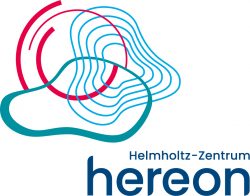Infrastructure
(short name)
Coastal Observing System for Northern and Arctic Seas
(COSYNA)
Installation
(short name)
COSYNA FerryBox
(COSYNA_FB)
Location
From the English coast to Germany and Skagerrak, Southern North Sea.

Coordinates/Routes
Southern North Sea with different ports
Bottom depth
Legal name of organisation
Helmholtz-Zentrum Hereon
Country
Germany
COSYNA (Coastal Observation System for Northern and Arctic Seas) is an operational coastal monitoring, forecasting and information system for the North Sea composed by fixed platforms, FerryBoxes, gliders and HF-radar systems. It is being developed by institutes of the German Marine Research Consortium (KDM) and collaborating institutions and is operated by the Hereon Research Centre. The infrastructure represents an investment of 9 M €. It was build up since 2007 and is fully operational since 2012.
COSYNA_FB is one of three FerryBox systems on different routes in the southern North Sea equipped with sensors T, C/S, turbidity, DO, pCO2, pH, chlorophyll-a-fluorescence, partly nutrients (NOx, NO2, PO4, SiO2) and a cooled water sampler. The first vessel is a ferry (FunnyGirl) and operates between Büsum and the island Helgoland from April to October on a daily basis, the second vessel (Hafnia Seaways) goes from Cuxhaven (DE) to Immingham (GB) ~6times/week year-round and the third vessel (Lysbris) cruises between Halden (NO), Zeebrugge (BL), Immingham (GB) and Moss (NO) year-round.
Web site address: http://www.cosyna.de
| Instrument | Measured Parameter(s) | Elevation / Depth | Sampling | Frequency of data recovery |
| Alkalinity (partly) | Total alkalinity | Surface (~5 m) | 20 s | After each cruise |
| Nutrient Analyser (partly) | NO2, NOx, NH4, o-PO4, SiO2 | Surface (~5 m) | 20 s | After each cruise |
| Turbimeter | Turbidity (FTU) | Surface (~5 m) | 20 s | After each cruise |
| pCO2 Sensor | pCO2 | Surface (~5 m) | 20 s | After each cruise |
| pH sensor | pH | Surface (~5 m) | 20 s | After each cruise |
| Aanderaa Optode | Dissolved oxygen | Surface (~5 m) | 20 s | After each cruise |
| Fluorometer | Chlorophyll-a fluorescence | Surface (~5 m) | 20 s | After each cruise |
| Salinometer | Temperature, conductivity, salinity | Surface (~5 m) | 20 s | After each cruise |
– In person/hands-on: the presence of the user group is required/recommended during the whole operation,
– Partially remote: the presence of the user group is required at some stage e.g. installing and un-installing user’s equipment.
Unit of access (UA): day.
Quantity of access available for the 3rd Call: 120 UA=120 days.
Users can apply for a maximum access duration of 120 days (120 UA). Access duration corresponds to the period of installing, operating and un-installing a measuring system by the users (partially remote access) or in his/her behalf by the access provider (remote access). Hereon provides access to one of the three FerryBox systems installed on the vessels FunnyGirl, Hafnia Seaways and Lysbris
All data from the COSYNA nodes are delivered real- or near-real time to the COSYNA data server open to the public via free internet connection. Furthermore, all underway FB data are delivered in near-real-time to the NOOS portal, including data quality flags. All systems have a remote access via mobile phone (in the harbour) and partly via satellite.
A support team of technicians and scientists of Hereon will prepare the instrumentation; service the instrumented ferry; support operations at sea; support in processing the data.
To be verified with the facility provider.
